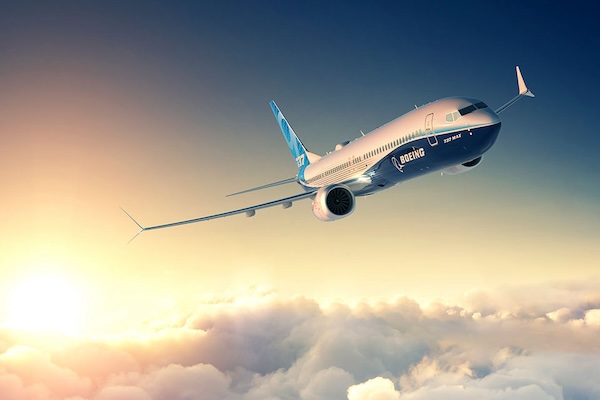Boeing has been directed by the FAA to pause its 737 Max production expansion amid safety concerns.
Following a significant safety incident with Alaska Airlines, the FAA has enacted stringent measures.
Production Halt Amid Safety Concerns
The Federal Aviation Administration (FAA) has issued a directive to Boeing to halt the expansion of production for its 737 Max aircraft amid ongoing safety investigations. This decision came after a critical incident involving the blowing off of a door plug during an Alaska Airlines flight, prompting the grounding of 171 Boeing 737-9 Max jets. The FAA has emphasized that such incidents ‘must never happen again,’ reinforcing the importance of stringent safety measures.
Comprehensive Inspection and Maintenance Required
In response to the safety concerns, the FAA has mandated a detailed inspection and maintenance protocol for the grounded 737-9 Max fleet. Each aircraft is to undergo a rigorous procedure, approved by the FAA, before it can return to service. Alaska Airlines has already begun the process and anticipates completing inspections for its fleet over the next week, with the first few aircraft expected to resume flights soon. United Airlines has also received FAA approval to proceed with its own preparations.
These inspections are extensive, taking up to 12 hours per aircraft to ensure compliance with safety standards. Once completed, the aircraft will be eligible to return to commercial service.
Boeing’s Pledge to Enhance Safety
Boeing has expressed deep regret over the disruptions caused to its airline customers, employees, and passengers, acknowledging the significant impact. Stan Deal, CEO of Boeing Commercial Airplanes, stated: ‘We are taking action on a comprehensive plan to bring these airplanes safely back to service and to improve our quality and delivery performance.’
The FAA’s position is firm, with administrator Mike Whitaker stating that the 737-9 Max will not return to service until safety is guaranteed.
The FAA’s assurance efforts include increased on-ground oversight, ensuring manufacturing processes meet the highest standards.
Ongoing Review and Investigation
The FAA continues to support the National Transportation Safety Board’s investigation into the critical Alaska Airlines incident. This comprehensive review involves examining thousands of documents and interviewing over 250 relevant personnel, including Boeing employees, suppliers, and FAA staff.
The extensive review aims to provide a clearer understanding of Boeing’s safety management processes and their impact on the broader safety culture within the company.
Results from this review will further inform the FAA regarding any additional actions required to enhance safety.
Return to Service Under Scrutiny
The FAA has outlined a stringent process to ensure the grounded aircraft meet original design specifications. Once this extensive maintenance and inspection process is completed, the 737-9 Max planes will be deemed safe to operate once again.
The focus remains on ensuring that the modifications align with the original safety design to prevent future incidents.
Throughout this process, Boeing remains committed to cooperating fully and transparently with the FAA, following their guidance to enhance safety measures.
The agency’s decision to delay Boeing’s production expansion underscores its commitment to resolving quality assurance issues effectively.
Insights from Industry Experts
Industry experts have weighed in on the situation, highlighting the importance of rigorous oversight and quality control in aviation manufacturing. These voices stress that the ongoing probe and subsequent safety measures are crucial for maintaining the aviation industry’s integrity.
The FAA’s proactive stance in addressing these safety concerns reflects the regulatory body’s commitment to upholding high safety standards. Additional ‘boots on the ground’ are tasked with scrutinising production closely.
The collaborative efforts between Boeing and the FAA aim to restore confidence in the safety of the 737 Max series amongst operators and passengers alike.
Future Implications for Boeing
Boeing’s commitment to cooperating with the FAA and adhering to stringent inspection and safety protocols signals a shift towards enhanced safety and quality assurance measures. This strategy is seen as critical to restoring trust and confidence amongst airline operators and passengers.
As scrutiny continues, Boeing’s ability to respond effectively to these challenges will significantly impact its reputation and market position.
Boeing’s compliance with FAA regulations is crucial for restoring confidence.
The enhanced oversight and inspection processes highlight a commitment to safety.

